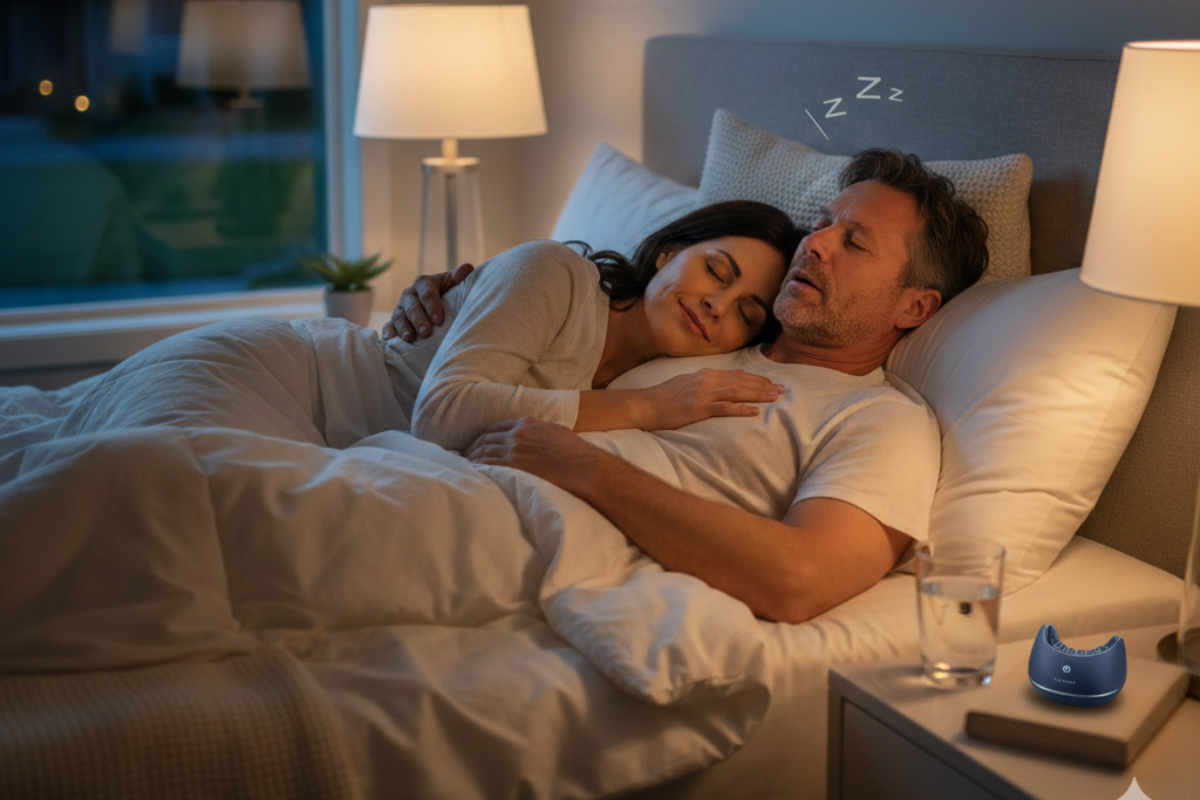Free Shipping - On Orders Over $99 (USA, Canada, UK, & AU)

What Is Sleep Hygiene?
June 28, 2021 3 min read
When struggling with insomnia, people are advised to work on their sleep hygiene. But what exactly is sleep hygiene?
The term “sleep hygiene” refers to healthy sleep habits, which you practice throughout the day as well as right before bedtime that set you up for restful sleep. Nathaniel Kleitman was the first to talk about sleep hygiene in 1939, but the concept as we know it today was born with advancements in sleep researchers starting in the 1970s.
Sleep experts believe practicing sleep hygiene is most effective for people with mild sleeping problems and that it’s an essential component of a healthy lifestyle. It’s also important adjuvant therapy for those with more severe cases of insomnia and other sleep disorders.
Here is more on what sleep hygiene is and why it’s so important for your health.
Why Sleep Hygiene Is Important
Just like food, water, and air, sleep is essential for life. But getting enough of it can be challenging in our fast-paced world.
As explained in an article by sleep expert, Dr. Michael A. Grandner, “...sleep is also socially driven, dictated by the environment, and subject to interpersonal and societal factors.” In other words, many things in your environment can disrupt your sleep. The only solution then is practicing good sleep hygiene.
Sleep hygiene becomes particularly important if you have trouble falling asleep, staying asleep, or don’t feel rested no matter how much sleep you get — in other words, when you have insomnia. Sleep experts believe it’s an effective first-line and stand-alone therapy for mild to moderate cases and an important adjuvant therapy for severe ones.
But even if you don’t have sleep problems, good habits can help prevent insomnia from becoming chronic according to the “3P model” of insomnia. According to this model, life stressors and genetic predisposition may affect your sleep from time to time, but it’s bad habits that are the final nail in the coffin.
How to Practice Sleep Hygiene
Healthy daily routines, bedtime rituals, and an optimal sleep environment are examples of sleep hygiene practices. Based on what we know about the physiology (and sociology) of sleep, there are a couple of general sleep hygiene recommendations.
Sleep Hygiene Checklist:
Try to go to bed and wake up at the same time each day. Irregular sleep schedules are associated with poor sleep, while good sleepers generally are asleep during a set “sleep window” each day.
Those affected with insomnia often try to catch up on lost sleep with naps, but studies show this can disrupt nighttime sleep in this group. To keep yourself from napping, try to stay active and get some fresh air.
Exercising regularly helps with sleep by tiring you out and causing a release of stress-reducing chemicals. Other healthy habits that improve sleep are spending time outside, limiting alcohol (especially before bed), not smoking, and eating light meals at dinner.
Caffeine, nicotine, and alcohol are examples of common stimulants linked to poor quality sleep. Quitting can be hard since all three are addictive, so try to limit your intake a couple of hours before bedtime first.
Bright light, but especially blue light emitted from electronic devices, suppresses melatonin production. This effect stops as soon as you turn off your device. Another way to limit exposure to blue light before bed is to activate “reading mode” on your phone or tablet.
Bedtime rituals can help you unwind, relax, and prepare your mind for sleep. Relaxing activities like warm baths, meditation, reading, and journaling are best for putting you in the mood for sleep.
Reduce bedroom noise, light, and temperature for an optimal sleep environment. Alternative solutions include using earplugs, a sleep mask, and turning on the fan when nothing else works.
Sinus infections, allergies, drinking alcohol at night, and excess weight can all lead to frequent snoring, which disrupts sleep for you and everyone around you. If other snoring solutions didn’t work for you, consider tongue stabilizing devices like the Good Morning Snore Solution.
While these techniques can work for many, it’s important to know that there is no one-size-fits-all solution where insomnia is concerned. What may work for one person is not suitable for someone else. Shift workers, for example, have different needs compared to 9-5ers, as do people of different ages and chronotypes. That’s why it helps to look at the above tips as a template for your personalized sleep hygiene checklist.
References:
- Grandner MA. Sleep, Health, and Society. Sleep Med Clin. 2017;12(1):1-22. doi:10.1016/j.jsmc.2016.10.012
- Irish LA, Kline CE, Gunn HE, Buysse DJ, Hall MH. The role of sleep hygiene in promoting public health: A review of empirical evidence. Sleep Med Rev. 2015;22:23-36. doi:10.1016/j.smrv.2014.10.001
Also in Blog

Healthy Sleep Goals For 2026
December 22, 2025 6 min read

💨 Are Your Nighttime Breathing Issues Robbing You of Your Health and Your Energy?
December 12, 2025 3 min read
Breathing issues during sleep, collectively known as sleep-disordered breathing, are a major public health concern.

Is Your Snoring a Sign of Something More Serious? Unpacking the Science of Sleep
December 05, 2025 3 min read
When you snore, what's actually happening?
Join our Insiders Club
Every week you will receive specials, discounts, and giveaways.
Categories
- Better Sleep
- depression
- Fitness
- funny animal
- Global Citizenship
- health
- Mental Health
- mouthpiece
- nutrition
- pillow
- Productivity
- relationships
- sleep
- sleep apnea
- sleep deprivation
- Sleep Tech
- snoring
- snoring humor
- snoring jokes
- snoring sounds
- stop snoring
- StopSnoringStartLiving
- technology
- Tongue displacement
- travel
- video
- Young Adult

